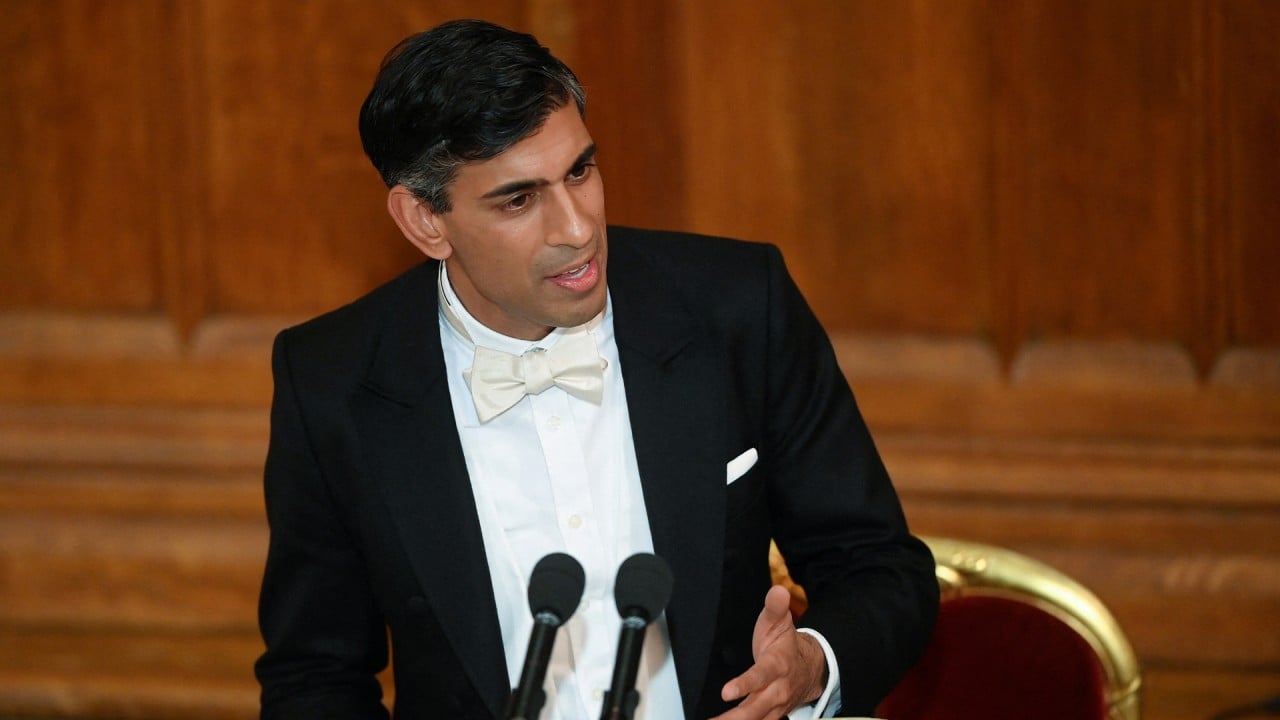
Britain’s Sunak is choosing pragmatism towards China, but his own MPs aren’t convinced
- Faced with an ailing economy and weary public, new UK leader Rishi Sunak has signalled that he won’t risk upsetting valuable trade ties with Beijing
- But this stance comes at a delicate time internationally, and in his own party Sunak must contend with an increasingly vocal anti-China faction
Britain has been so self-absorbed in recent months that new Prime Minister Rishi Sunak has limited himself to repeating two key messages his predecessors already considered a sine qua non on the world stage: Brexit and support for Ukraine are irreversible. For the world’s sixth largest economy, nuclear power and permanent member of the United Nations Security Council, such statements hardly qualify as a foreign policy vision.
Even more so, as Sunak is an unknown quantity in the geopolitical arena. Unlike his direct predecessors, Liz Truss and Boris Johnson, he did not serve as Secretary of State before moving into 10 Downing Street.
However, that inexperience turns out to be a surplus in Sunak’s case. After all, a man without a foreign policy doctrine written in stone is much more likely to rely on pragmatism than staunch ideology.
His penchant for realpolitik became apparent during his speech. Although Sunak stated his government recognises that Beijing poses a “systemic challenge to our values and interests”, he did not describe China as a “threat” to the kingdom’s security. This is particularly noteworthy given that Liz Truss was reportedly determined to tag the threat label onto China.
As former Chancellor of the Exchequer and an investment banker before his political career, it seems plausible that Sunak possesses a proclivity for favouring economic factors over obsolete bloc thinking and dogma.
The British economy, in particular, was eagerly awaiting such a foreign policy direction after 12 months of mixed signals from the government.

Severing ties with Beijing would mean old and new trade partners become necessary to fill the void, forcing Britain to negotiate from a position of weakness, not to mention that it would raise the likelihood of an inflationary cost-push in global supply chains that no one desires.
Moreover, his previous rhetoric shows a lane for a hardline approach towards China, particularly within his own Conservative Party, exists. Unsurprisingly, his speech disappointed the “China hawks” in his party, who have become steadily more China-sceptic in recent years.
Sir Iain Duncan Smith, a Conservative member of Parliament, accused Sunak of going soft on China, saying, “I wonder if robust pragmatism now sounds more and more like appeasement”.
Sunak hence finds himself in a challenging position. On the one hand, as he rightly pointed out himself, Britain “simply cannot ignore China’s significance in world affairs”, as it extends to economic stability, climate change, food security, nor the benefits the Chinese market conveys to Britain.
On the other hand, Sunak faces strong opposition on China among the Tories and, due to arguably lacking a proper mandate, he does not possess the authority needed to confront these China sceptics.
3 British prime ministers in 7 weeks – how did that happen?
These sceptics will hope for the Integrated Review, which establishes Britain’s defence and security strategy for the next decade, to suggest a change in stance on China and conclude that it is indeed a threat, not a mere challenge. If this were the case, Sunak could be compelled to backtrack on his idea of “robust pragmatism”.
However, even with a different label attached to Beijing, Sunak’s general idea regarding China has become pretty apparent since Monday.
Thomas O. Falk is a UK-based independent journalist and political analyst


